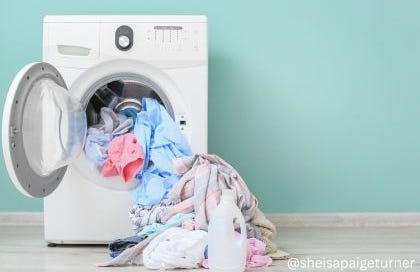A Lesson in Domestic Labor – How Chores Can Lead to Divorce
Why Unequal Responsibilities at Home Can Break Your Marriage
I recently asked my Instagram followers a simple yet profound question: Have you ever considered divorce because of the inequities in your home when it comes to domestic labor and the mental load? The overwhelming majority—over 60%—said yes. That doesn’t mean they’ve spoken to a lawyer or brought it up to their partner, but it means they’ve thought about it. And the reason? The weight of the mental load, the chores, and the responsibilities of raising children has left them feeling uncertain about whether continuing the marriage makes sense.
When I asked women why this was the case, the answers varied, but the themes were clear. The common thread? Women are exhausted from carrying the mental load, doing the bulk of the work at home, and not being seen or valued for it.
Here are a few of the reasons why women shared they had considered divorce:
“I’m tired of my partner promising change with no follow-through.”
“It feels like I have another child in the house. It would be easier if they weren’t here.”
“What I do is unseen and unvalued. I deserve an equal partner.”
This is something that needs to be acknowledged, because so many women are silently carrying the mental load for their families. They’re doing the bulk of the chores, managing the household, and raising the kids. And when they go to their partners for help, the response is often, “Just write me a list, tell me what to do. I’m happy to help.”
But that doesn’t help relieve the mental load—it only shifts the responsibility of managing it onto the woman. Suddenly, she’s not just managing her children, but also her partner, and it becomes a never-ending cycle of doing more without seeing equal participation. In this scenario, women become the “nag” or the “ball and chain”—a stereotype perpetuated by sitcoms where the wife is always the one making demands, while the husband is just trying to be the fun, laid-back dad.
This dynamic doesn’t just harm relationships—it stunts them. Women are unable to thrive when they are not only parenting their children but also acting as the emotional and logistical caregivers for their partners. The frustration grows, and the burden becomes too heavy to carry.
For many men, when their wives bring this up, they dismiss it as nagging. They might think it’s not a big deal. But for women, this is an incredibly big deal. It’s not just about chores—it’s about feeling unseen and unappreciated in a partnership that’s supposed to be equal. It’s about wanting to be supported in a way that allows them to thrive as individuals, partners, and parents.
And it’s so serious that women are considering leaving their marriages because of it.
This issue isn’t just about getting the laundry done or splitting the chores. It’s about equity in the home. It’s about understanding the importance of shared responsibility and partnership. When one person carries the majority of the burden—physically and emotionally—it takes a toll on the relationship. It leads to resentment, burnout, and, in some cases, the breakdown of the marriage itself.
So, if you’re reading this and recognize these patterns in your own relationship, it’s time to have a real conversation. Women are not asking for perfection—they’re asking for equity. They’re asking for their partners to step up in meaningful ways. If both partners share the load, they’ll both thrive, and the marriage will be stronger for it.
It’s not about nagging. It’s about finding balance and making sure both people are seen, valued, and supported. Women don’t want to leave their marriages—they want them to work. They want to build thriving families, but they can’t do it alone. It’s time for men to recognize how big of an issue this is and step up to create true partnership in the home.
We can’t keep ignoring the mental load. We have to share it. And in doing so, we’ll create stronger, healthier relationships.




